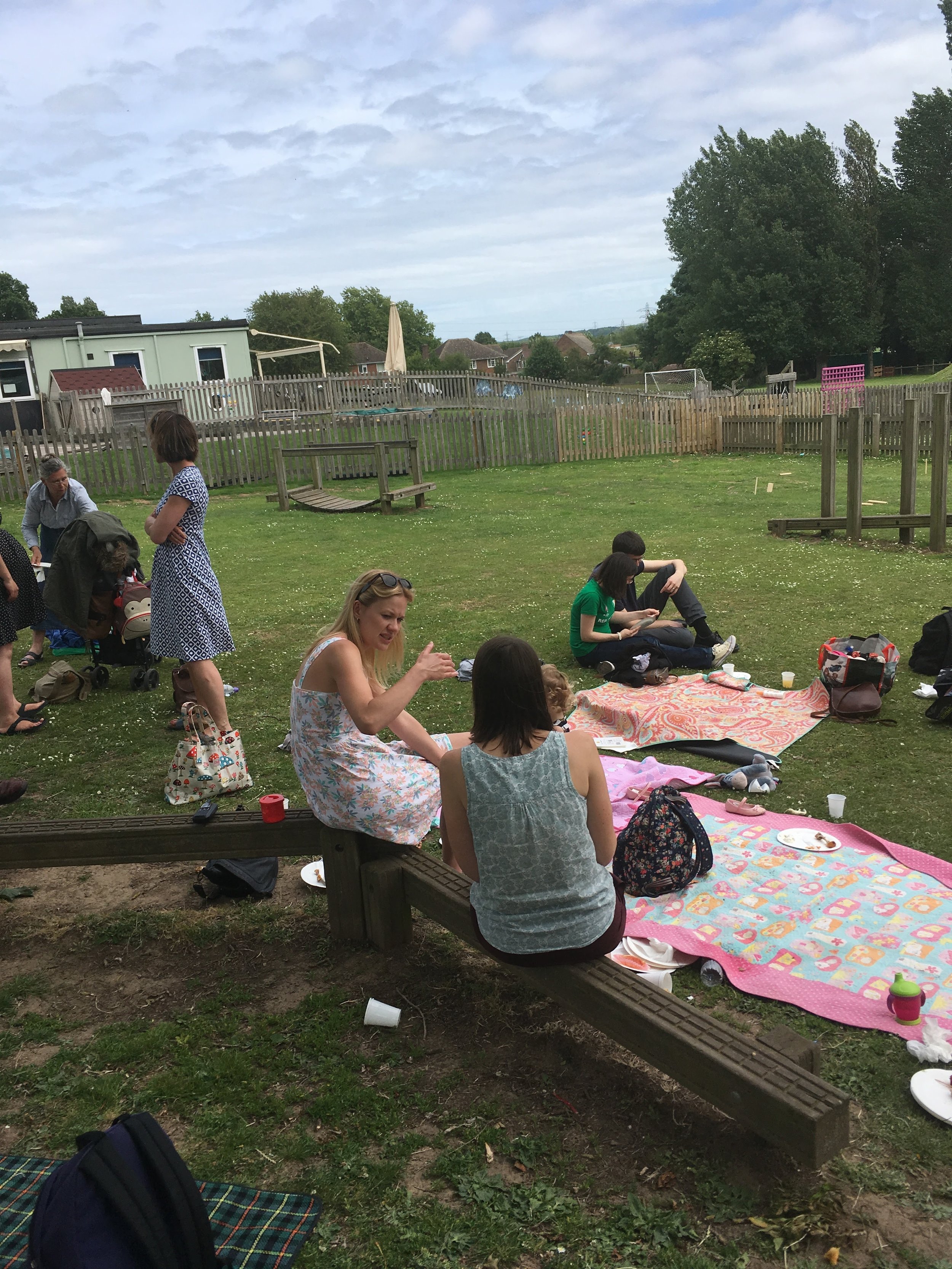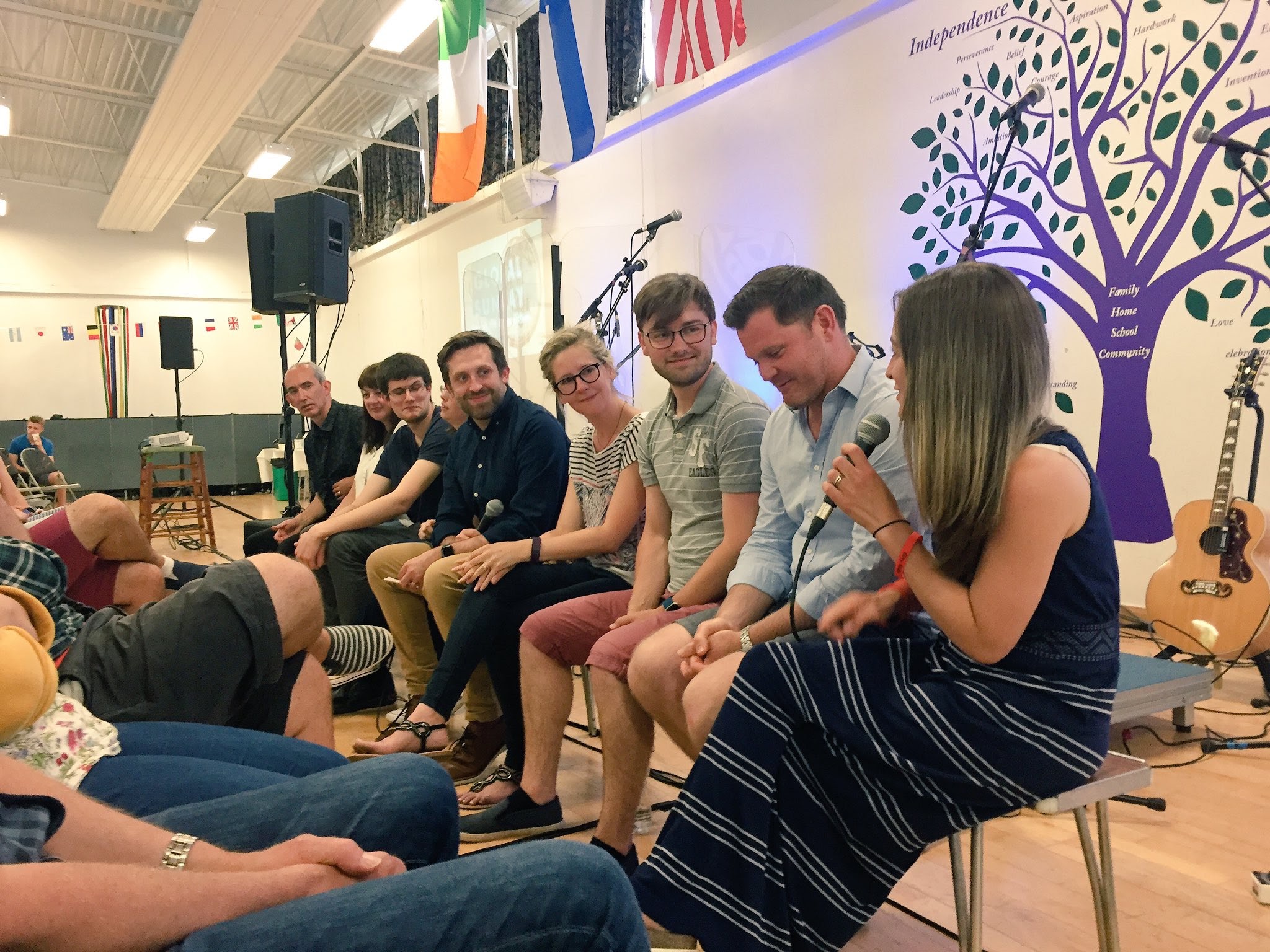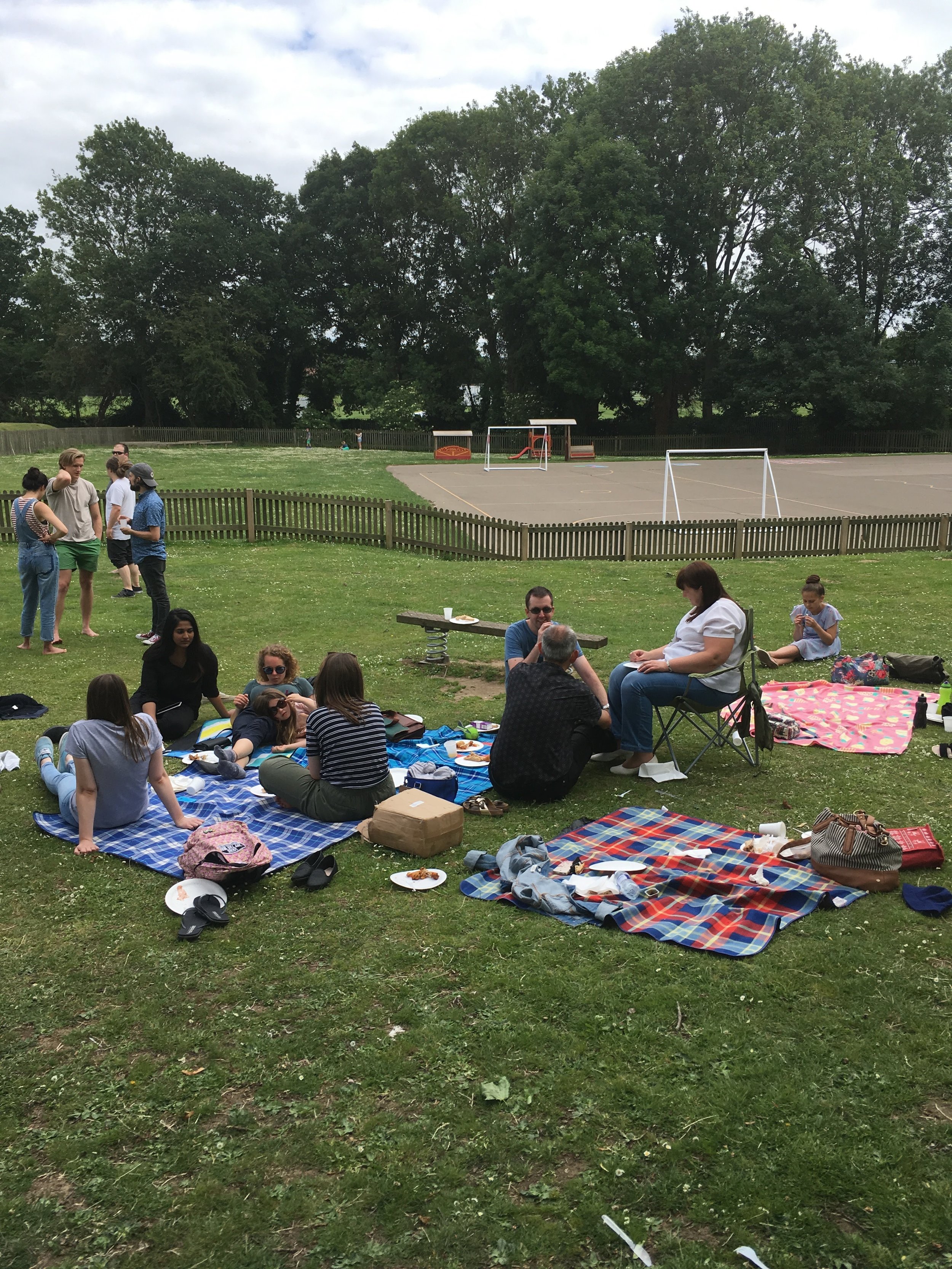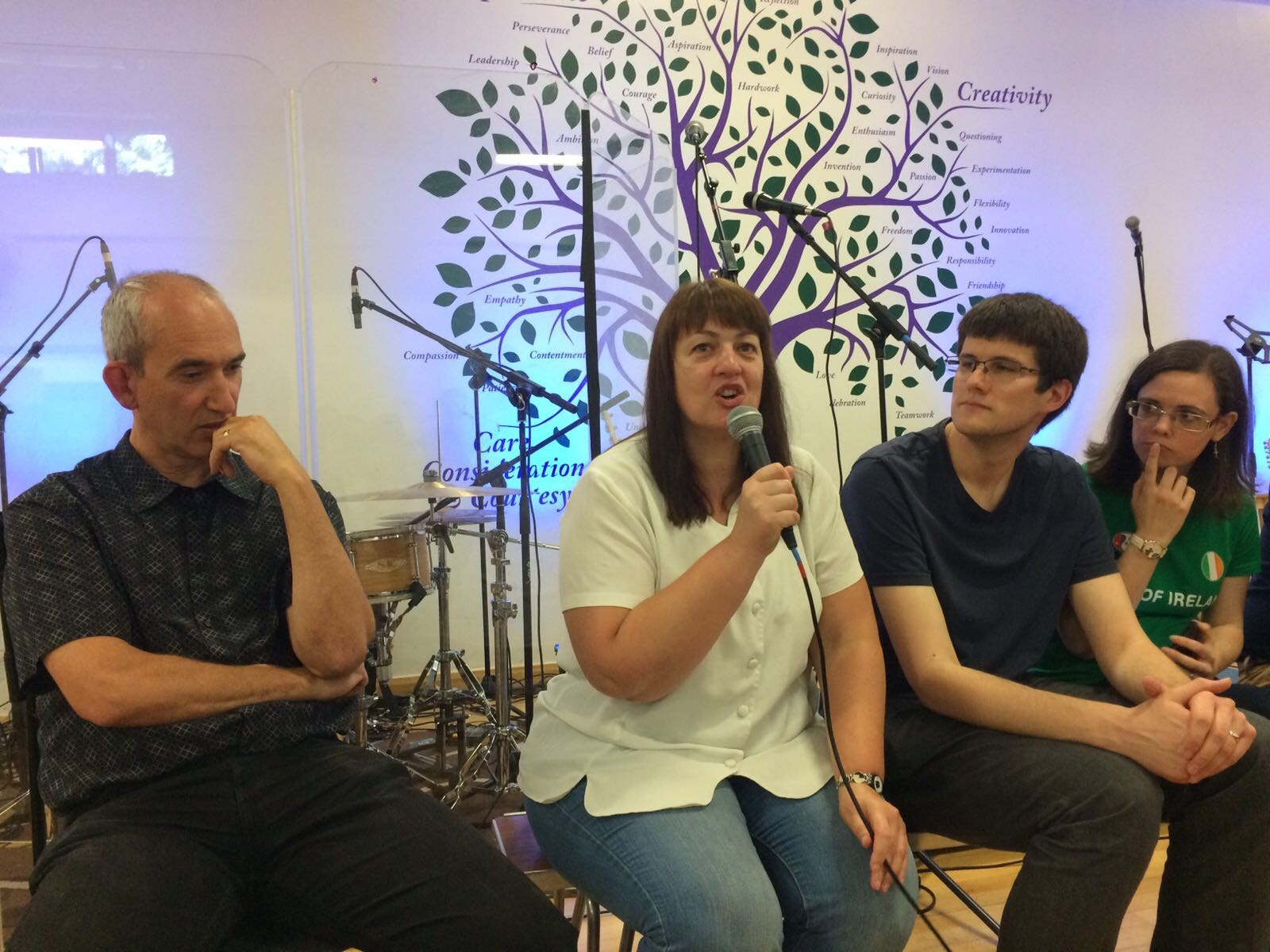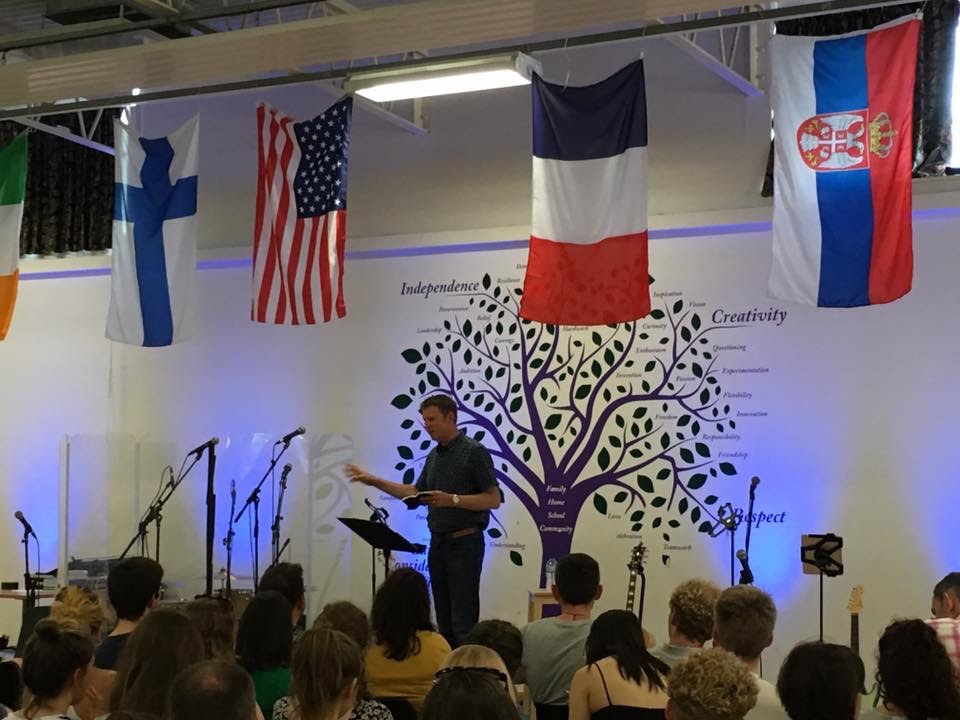
HUGH'S BLOG
Pioneer Couple to Eldership Team – The Journey
Pioneer Couple to Eldership Team – The Journey
I was recently chatting with someone I respect greatly and he asked if I had recorded our journey from church plant kick off as a ‘pioneering couple’ in our living room to establishing an eldership team…I hadn’t, so this is my ‘looking back’ at our journey.
Background.
In July 2015, having moved to Colchester to plant a church our family started to invite people to join us for midweek ‘Connect Nights’ as we called them then. It was me, my wife (who we were to find out was pregnant by then) and our two children (4 & 2). We knew that within a few months another couple from our sending church were coming to join us. Nothing else was certain. Just over three years later on the 31st March 2019 we commissioned four elders to serve what had become Redeemer Church Colchester.
Three Starting Points.
Three key convictions that were key to outworking this journey;
1. Be Convinced
I am convinced that getting an eldership in place was absolutely vital for the health and growth of our church. Paul writes to Titus and tells him to get elders in every church to ‘straighten things out’. I am convinced that churches need elders to ‘get straightened out’ and move forward healthily.
I am convinced churches should multiply (plant churches) and therefore we need more elders all the time – for here now, here as we grow and there (planting or strengthening other plants).
I am convinced church leadership should be a team of elders – therefore we needed more than just me!
2. Be Deliberate
I am convinced that we need to be deliberate in prioritising, developing and identifying elders for the reasons above – but in a church plant situation it is very easy to be overwhelmed with lots of day to day tasks and to think ‘what’s the need today, we will get to elders in time’.
3. Begin with what you have
I am convinced that you can disciple elder-like men as the qualifications for elders are Christ-like character. The worst that will happen is good discipleship and good men!
Timeline.
I’ll begin with simply outlining the key markers/steps along the way and then fill out what the journey was like – many of the steps we got to were ‘fruit’ of the culture of the journey.
July 2015 – December 2015 – Midweek gathering in homes
On Sundays we travelled 40min to a nearby church expressing something of what we wanted to become.
January 2016– April 2016 - Sunday & Midweek gatherings in homes
May 2016 onwards - Sunday gatherings in public venues, Midweek in homes
May 2017 – ‘Planning Team’ established (not publicly announced)
Jan 2018 – ‘Leadership Team’ established (publicly announced)
Jan 2019 – Eldership Proposal (publicly to the church)
March 2019 – Eldership Commissioned
If I was to summarise the process it would be;
Relationship – getting to know the person
Gathering for relationship
Releasing – giving opportunities to discover and use gifts
Giving Room
Recognising - getting a sense of the ‘grace’ on people
Grace recognition
Recruiting - gathering men who I’d recognised ‘grace’ on for shepherding
Gathering for purpose
Raising – discipleship & training
Growing together
Cycling through ‘Recognising, Recruiting and Raising’ - for us this was Planning Team —> Leadership Team —> Eldership
Key Considerations.
Some key considerations that emerge from unpacking the above summary. These are somewhat ‘summary points’ too and could be unpacked more comprehensively.
1. RELATIONSHIP
If the church is to be a ‘real family’ then this needs to be modelled by the ‘fathers’ in the house.
As the elder qualifications in the Bible are mostly about character you actually have to know each other beyond a meeting context to ‘get under the bonnet’.
Unless you are looking for yes men, there are going to be challenges and conflicts in the team – strong relationships mean these are fruitful not fatal!
Whilst not all having to be ‘best friends’, deep godly friendships are vital if we are to ‘guard each other’. Relationship means bringing challenge into each other’s lives can be done more effectively, precisely and winsomely. You have to know someone well to know how to do that!
As the ‘point leader’ or ‘team leader’ you have to set the culture and be open and vulnerable too. You must lead by example.
Being in each other’s homes is helpful, it immediately removes formality and gives you an insight into each other that you might otherwise miss.
2. RELEASING
You need to create contexts where gifts can emerge.
Drawing others into pastoral meet ups, preach planning, meeting leading, small group leading and sometimes letting them take the lead must be deliberate and purposeful.
The longer you wait to do this you more you perpetuate the ‘single pastor/man of God’ culture in your church which will forever undermine anyone else’s contribution or authority. Also, the longer you wait the higher the stakes – set the culture now! Obviously, this is not done recklessly and you guard the culture.
A lot of this can be done subtly and privately simply by inviting people to speak into areas of your life and church life/pastoral situations.
3. RECOGNISING
I love this part – seeing what God has put in people! Always be looking for it, just as a Father seeks to nurture the talents and abilities of their children we get to do the same in each other’s lives.
It is vital to be deliberate in inviting outside eyes and counsel from early days – prophets, apostolic leadership, fellow church leaders. This avoids you only recognising those in your ‘mould’ and helps avoid any sense of blindness!
Ask God for discernment, and – one of my favourite phrases – follow the fruit – where is this person being fruitful (even if they don’t see it!). How do others speak of them/commend them. What do they pray fervently about?
4. RECRUITING
Whilst all the above is done informally (although some setting might be more ‘formal’ (e.g. planning team) there comes a time to explicitly ‘test’ the call, qualification and desire more deliberately and publicly.
This also allows the church to journey with you and is an opportunity to educate the church and get prayer!
Some people change significantly when given a ‘mantle’ or ‘role’ – this can be positively or negatively and you are then given the chance to work that through (it could be due to pain/previous experience/wrong timing/calling/insecurities).
This also helps bring the sobriety of eldership to the fore – being before the church, carrying responsibility, living with the ‘whole body’.
Deliberately ensure everyone is fully invested in this stage.
Whilst more ‘public’ it is healthy to set a culture of investigating and growth – take the church on the journey. Not everyone in this phase may be become elders, that is ok. If that is a problem for an individual it is likely revealing something that needed to be revealed!
5. RAISING
The whole process is ‘raising’ but there comes a time, often alongside the ‘recruitment’ phase to deliberately train and focus on eldership qualifications and roles.
We met very regularly in this season – it was high commitment.
We worked through scriptures and books.
Alexander Strauch ‘Biblical Eldership’ / PJ Smyth ‘The World needs More Elders’.
I connected our emerging team to apostolic ministry and trusted friends
We prayed weekly together on Friday mornings (you catch much culture in praying together!).
Get the others raising others too!
We’ve learnt much and keep learning. These are very much ‘summary notes’ and may raise some questions that are not answered, but hopefully gives you an insight into our journey and maybe of some help in yours.
CHURCH PLANTING TIPS...
I was recently asked for a short response to ‘What would your top 3 church planting tips be?’ - the below answer took into account the person asking, our relationship and their setting. Below is what came to mind immediately…what would you say?
PERSONAL
1) Be Real
People are attracted to authenticity
It is exhausting not to be
If you are not, you’ll need to keep up the show to keep people
People follow someone who is real before someone whom is right (Craig Groeschell)
2) Be Connected
apostolic fathering
brothers
movement/network
3) Be at peace
God is Sovereign you’re not
Jesus is building his church
His yoke is easy
His kingdom is increasing
He pursues people
He has people in your city
He called you
PRACTICAL
1) Prepare / Structure for growth ahead of time
leadership
website / database
serving expectations and excellence
But like a Swan...people experience the serene floating on calm waters (the fruit of the structuring), but you are working hard beneath the surface.
2) Prioritise eldership/leadership
something is left ‘unfinished’ until that’s in place - Titus (brings security)
3) Pursue Partnership
mainly with apostolic/churches in your network for support/sensing
STRATEGIC
1) Focus on developing culture
above quantity, appearance, quick fix
tell stories
structure calendar for the outworking of mission and community
2) Build deep community but always talk mission
Community on mission
the two are not mutually exclusive but rather mission is inevitable fruit of authentic gospel community - and community the means of discipleship.
3) Connect your People apostolically
invest in getting guest speakers
Invest in taking them to conferences, telling stories, road trips
Connect them relationally to the ‘bigger picture’ = ownership
4) Work hard, rest deeply, play well
Embrace seasons
Don’t fear lulls/holidays,
Enjoy drinks/meals with leaders in your church and friends
Build into budget
Enjoy journey
—> If I had to choose just 3
1) Be real
2) Structure ahead
3) Focus on culture
GLOBAL SUNDAY - GLOBAL VISION
Global Sunday is a service held by The City Church to celebrate how God has used that particular church to equip and send people across the 'globe' to pioneer gospel advance through starting churches, joining church plants or strengthening existing churches.
Global Sunday is a service held by The City Church to celebrate how God has used that particular church to equip and send people across the 'globe' to pioneer gospel advance through starting churches, joining church plants or strengthening existing churches.
Before moving to Colchester I was based at The City Church for 15 years and was an elder for the last 7 of those years. For the last 3 or 4 years I was responsible for 'church planting' - encouraging, guiding, equipping and helping pioneers 'go'. being at Global Sunday was therefore a great privilege to see the fruit that has come out of that church.
Present on the day were ourselves and the Redeemer gang from Colchester (UK), the Groombridges from Nis (Serbia), the Eatons from Lille (France) and the Sharpes from Dublin (Ireland). All of these families have bent sent by The City Church in the last 3-5 years. Below is a quick list from memory of the places people have moved to from City to pioneer or strengthen churches in the last 15 years - or have moved for other reasons and had a positive impact on where they are) - I will obviously miss some!
- Dublin, Ireland
- Lille, France
- Helsinki, Finland
- Nis, Serbia
- Geneva, Switzerland
- Herne Bay, Whitstable Colchester - UK
- Portsmouth, London, Cambridge, Seaford and more - UK
- Fredericton, Canada
- Christchurch, New Zealand
- Doha, Qatar
- California, USA (this year!)
I am sure the list could go on! Being a part of that was a privilege, and one of the reasons I ended up overseeing church planting was because 'going to the nations' has always been in my blood since my early christian days.
My Background
I didn't grow up in a Christian family and always wanted to follow in my Father's footsteps as a Safari Operator, Game Guide, Professional Hunter...that kind of thing! Somehow God broke into my life and I came to know Jesus as a very real person quite young and in my mid teens I was thrilled by the vision of a church as the 'highest of all mountains' with the 'nations streaming to it' to worship God and find him (Isa 2:2). Ever since then the idea of 'going' and 'planting' has thrilled me. That is why we are in Colchester - God called us and our desires were stirred to 'go again'.
My Longing
In my DNA, in the prophetic words over our church is this 'sending culture', this desire to 'touch the nations'. yes I want to see a large, healthy church in Colchester because that means lots of people are being saved and added! But the thought of being a resourcing, equipping, sending church excites me too! And I believe that is what God has for us...One year into gathering publicly these are the nations that have been represented in our church;
- Oman
- India
- Dubai
- Switzerland
- South Africa
- Zimbabwe
- Malaysia
- Thailand
- China
- UK
Three particular nations we have had the privilege of having people for a short time from, who have then gone back in some way encouraged and equipped;
- South Africa
- Switzerland
- India
We live in a town that has a University with a high percentage of foreign students - you can see why God brought us here and what He is doing! We get, in most cases, three precious years to train, disciple and equip (and be blessed by!) those who will return to nations around the globe! What a starting place?! More Lord!
BUILDING A STRONG SENDING BASE
At Global Sunday I was asked; 'What advice would you give to those considering pioneering?' - I found that an easy question to answer. 'Where possible be part of a strong and stable sending church, where you are known.' The equipping and support from The City Church to Redeemer has been amazing...yes the leaders BUT NOT ONLY THEM. Yes money...but NOT ONLY THAT. The prayers and the people, the friendship and the faith...people REALLY pray for us, people give, people visit, people love. I was met by a gentlemen on Global Sunday who had only been at the church for a few months - we had never met and he arrived long after we had moved - and he greeted me warmly, told me his family had been praying for us, that he felt he knew us. Wow! A few months into being at the church he had been caught up into the church's mission...if you can be part of a church like that, do it! If your church is not quite like that, set about praying for it and fostering that culture and engaging in churches that are more like that. Healthy 'parenting' produces healthy children!
Global Sunday was a shot in the arm and a teaser for what God might have for us! Well done City Church, and Lord - grant us a similar legacy!










